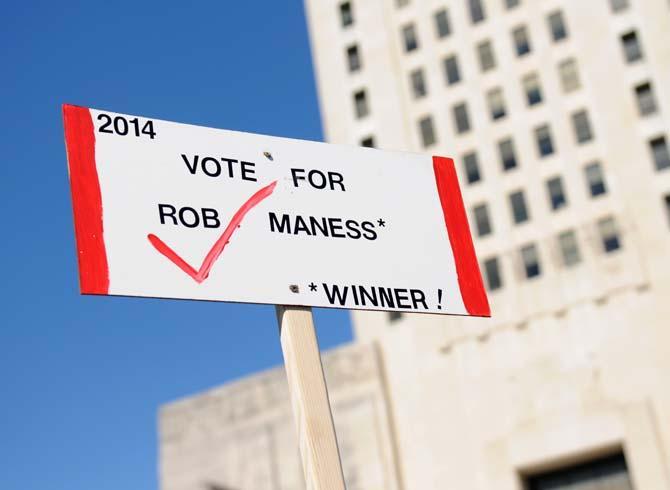Since George Zimmerman shot Trayvon Martin in February of 2012, the two have become household names, resulting in political discussion regarding “stand your ground” and concealed carry laws.
Students for Concealed Carry at LSU is a student organization that advocates for the right to carry concealed firearms on campus. This right, they state, should only be given to those who are “licensed, of-age individuals.”
The idea of students being allowed to bring firearms on campus makes me extremely nervous, but I have minimal issues when those students are fully informed of how and when to use them.
Concern arises from students not knowing who is carrying a gun, whether they have a license to do so and how much they can be trusted to follow their firearm education. This is where things begin to get a bit messy.
Hypothetically, a student argument could break out on campus, and one student could pull out a gun, fatally shoot the other and then claim self defense.
The Zimmerman trial did not involve “stand your ground” claims, but Zimmerman’s supporters cited it as reason to believe the man was defending himself.
On Saturday, a jury in Jacksonville, Fla., found Michael Dunn guilty of three counts of attempted murder because he shot at a vehicle of teenagers who refused to lower their music at a gas station. The shooting resulted in the death of seventeen year old Jordan Davis, though the jury cannot come to a unanimous decision on the degree of murder.
Dunn pleaded not guilty on all charges, claiming he thought he had seen a gun in the teenagers’ vehicle.
If the University allowed the concealed carry of weapons, we could see cases in which a student has reason to believe another student is carrying a gun and feel threatened to the point of acting violently in self-defense.
In an in-depth review of Louisiana’s “stand your ground” laws in July 2013, NOLA.com | The Times Picayune reporter Lauren McGaughy uncovered the history of the “castle doctrine” — the law that allows Louisiana citizens to defend themselves in the event of an attack on their own property.
This law allows you freedom from persecution when an intruder is on your property, given that the force used is equal to the threat perceived. Louisiana expanded the right to self-defense in 2006, passing its own “stand your ground” provision.
The provision states that in any situation where one individual has the right to be, public areas
included, they have the right to refuse to retreat, and instead match force with force. It also states that a judge or jury may not consider whether the individual could or should have retreated from the scene.
So a student argument that turns into violent force, in which each student has a right to be on the University’s public campus and reason to believe the other is carrying a gun, it is difficult to conclude whether concealed carry would solve any campus violence issues we have.
And in the event that the argument results in death, we could be left with only one witness — the shooter.
Because of the nature of the “stand your ground” cases, like a man shooting a teenager for having loud music and another man shooting someone for texting in a movie theater, provisions like “stand your ground” have gone too far.
Yes, we have a right to be in public areas, whether a gas station or a movie theater, but our right to defend ourselves only extends as far as the force used against us. In the cases mentioned above, the shooters had little, if any reason to believe their lives were in danger.
Concealed carry and “stand your ground” laws are issues that directly affect University students, and they each come with their own set of pros and cons. But the conversation has to start with the facts, and it has to consider the rights of all individuals on campus.
Jana King is a 19-year-old
communication studies sophomore from Ponchatoula, La.
Opinion: Concealed carry policies require more thought
By Jana King
February 18, 2014
Supporters of senatorial candidate Rob Maness hold up signs Sunday, Jan. 19, 2014 in front of the Louisiana state capitol building at the Gun Rights Across America rally.
More to Discover








